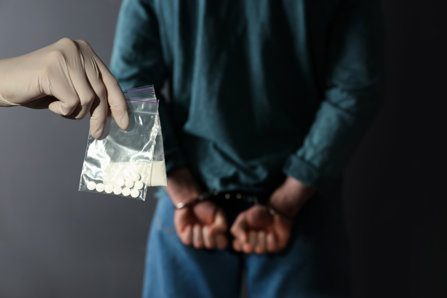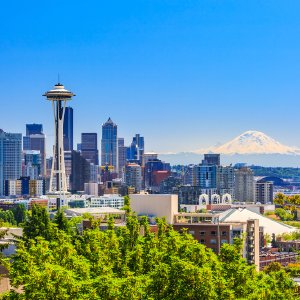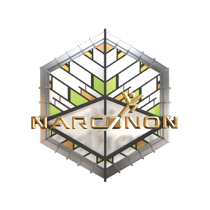The War on Drugs – An Ongoing Issue

The War on Drugs has often been called one of the most unpopular criminal justice reform policies in recent U.S. history. Begun in the early-1970s and accelerated in the 1980s and 1990s, the War on Drugs was a Nixon-era policy that declared drug abuse as “public enemy number one.”
Under the Nixon Administration, the battle against drugs consolidated several offices under one administration but remained fairly small. However, under the Reagan administration, the “War” was vastly expanded with a focus on law enforcement rather than treatment. This approach has resulted in a nation with one of the highest incarceration rates of any developed country.
Public opinion, however, has long been opposed to the mandatory minimum sentences brought on by Reagan’s new heightened War on Drugs. In fact, as each year goes by, the American people become more and more opposed to the idea of severe incarceration for basic drug offenses, such as possession without the intent to distribute, use of drugs, low-level marijuana offenses, etc.
So why then is the War on Drugs moving forward, just as strong as ever? Why are more people being jailed for drug use each year? And what would be the correct approach to tackling the nation’s considerable drug problem?
A Story from the New York Times
The growing drug problem is an indicator of just how ineffective these policies have been. Since the 1970s, the drug problem has only gotten worse, particularly since the late-1990s. For many, this is an indicator that the time is long past due to change in our approach. The very definition of insanity is trying the same thing over and over again and expecting different results.
However, according to the New York Times, current arrest statistics do not reflect public opinion on drugs, drug use, drug crime, and incarceration for drug-related offenses.
“In September, there were 1,654,282 arrests for drugs in 2018, a number that has increased every year since 2015. Drugs have been the top reason people have been arrested in the United States for at least the past ten years, and marijuana has been the top drug involved in those arrests…”

Quoting the New York Times: “In September, there were 1,654,282 arrests for drugs in 2018, a number that has increased every year since 2015. Drugs have been the top reason people have been arrested in the United States for at least the past ten years, and marijuana has been the top drug involved in those arrests. The percentage of drug arrests that have been for possession has also risen, to 86 percent last year from around 67 percent in 1989. And the majority of drug arrests have involved small quantities.”
The New York Times also cited the Federal Bureau of Investigation as having additional, valuable data pertinent to this issue.
Since many of the arrests do not lead to a conviction, one might ask, “Where’s the harm?” But even an arrest without a conviction carries an unnecessary burden for the arrestee. A drug arrest can harm employment opportunities, housing applications, educational prospects, etc. Furthermore, this issue continues to affect African Americans and Hispanics at a highly disproportionate rate.
And here’s the real, underlying problem that the criminal justice system never seems to catch onto. Everyone who buys drugs for personal use, who gets arrested, and who then either serves time in jail or is in some other way harmed by the arrest, is a person who had a problem, who sought to fix that problem with drug use, and who then was not helped.
The criminal justice system rarely does anything to help people who have a drug problem by simply arresting them and throwing them in jail. So, not only are arrests for possession, a waste of taxpayer dollars, and harmful for the arrestee’s permanent record, the whole process completely misses the point of helping the individual get to the bottom of why he was seeking out drugs in the first place.
Treatment, Not Incarceration, is the Answer to the Drug Problem
Let’s be very clear. Our country does have a drug problem, and it is not okay or right or acceptable to buy and use drugs. The concern here isn’t a debate over the moral nature of drug use. We agree that people should not use drugs. Instead, we are concerned with how drug use in America is approached.
Drug use is wrong and must be avoided. However, when people do struggle with drug addiction or alcohol misuse, they need to get help in the form of residential treatment, not incarceration.
Residential drug treatment centers that offer long-term services can help people overcome their drug problems. The criminal justice system, jails, and prisons are not able to do this. We need to address the millions of people in America who use drugs, but arresting them and incarcerating them is not the correct way to go about it.
Law Enforcement and Criminal Justice Absolutely Should Play a Role

Let’s make another point very clear. Law enforcement does have a place in tackling the drug problem. Law enforcement organizations can focus their attention on the supply of drugs. That includes tracking down drug dealers, cartels, trafficking syndicates, and even crooked pharmaceutical drug distribution groups.
We trust our boys in blue to protect us from harm. Arresting a drug user does more damage, in the long run, than it does good. Arresting a drug dealer, busting a cartel, or shutting down a “pill mill” (illicit pharmacy), on the other hand, does a world of good for the community.
Law enforcement officers can also help direct drug users into treatment programs, which some police departments are already doing.
If Your Loved One is Struggling with a Drug Habit
There is no acceptable degree of drug use. Any drug use carries with it significant risk, including marijuana use. If you know someone who is using drugs or misusing alcohol, you need to take it upon yourself to get them help at a residential drug treatment center.
Even if your loved one “seems” to have it under control, he or she is always just one step away from overdoses, accidents, injuries, drug-related crime, violence, or arrest. All have harmful consequences. Avoid all of those consequences by getting your loved one help as soon as possible.
Sources:
- https://www.nytimes.com/2019/11/05/upshot/is-the-war-on-drugs-over-arrest-statistics-say-no.html
- https://ucr.fbi.gov/crime-in-the-u.s/2018/crime-in-the-u.s.-2018
- http://leadkingcounty.org/
Reviewed by Claire Pinelli, ICAADC, CCS, LADC, MCAP, RAS


